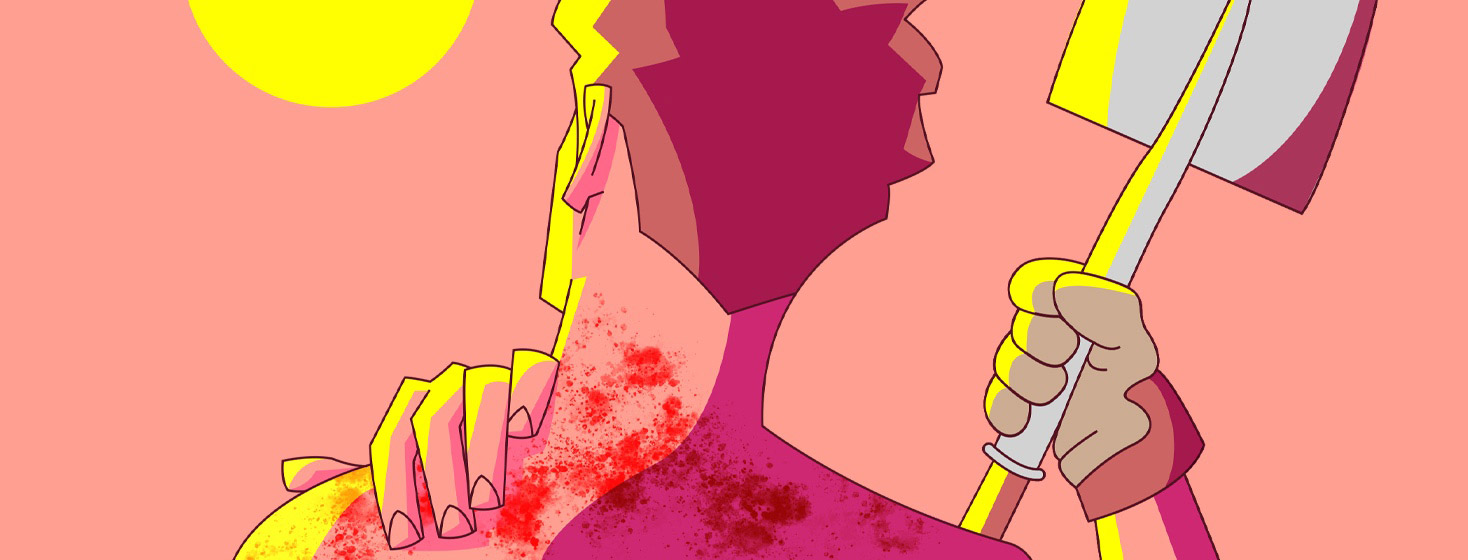How Shingles Reminded Me HIV Health Is My Top Priority
Years ago, after a long Mardi Gras weekend, my partner woke up with a rash on his side. Within a few hours, it changed from a series of bumps into a patch of red lesions. We went to the hospital where he was told it was a simple yeast infection. He was given an ointment and told to return it if it didn't clear up in 2 weeks.
The medicine did not work, and the rash continued to spread.
Our second trip to the emergency room came in the middle of the night when the pain from the sores became unbearable for him. In the 90s, I was forced to sit in the waiting room until the doctor finished his examination. I was not family, nor was our relationship recognized.
My partner came out of the double doors and collapsed in my arms. It was shingles. The tears flowed as he looked me in the eyes. All he could say was how scared he was, because it was well-known that shingles were considered an early sign of the onset of AIDS.
Learning about shingles
I didn't know anything about shingles at the time. I called our local AIDS hotline and asked some questions. They explained that the virus that causes chickenpox also causes shingles in adults. It lived on the nerves until some stress or immune system failure occurred.
Featured Forum
View all responsesThe person on the other end of the line confirmed that it could indicate a positive HIV status and asked if we needed testing. I hung up the phone and continued hiding in fear.
About 2 years later, after more opportunistic infections, our HIV status was confirmed. It had been an early sign. I wished we had done something sooner, but we didn't know what we could have done.
At the time, only 3 drugs were available to treat HIV, with limited success rates and side effects that were as bad as the disease. My partner passed before the advent of protease inhibitors, leaving me behind to deal with the guilt of survival and the challenge of growing old alone.
Featured Forum
View all responsesMy undetectable status Leads me to career decisions
In time my health stabilized as my viral load remained undetectable. I also learned I didn't have to be alone when love found me once again. I took this time to take some chances in my career and break out of my belief that the only place I wanted to live was the city I had been for several decades.
This confidence in my health led me to believe that something like shingles was something I would not have to worry about.
Then several summers ago, I was gardening in our Atlanta home. Working in the dirt is a passion; I often lose track of time. On this day, it was sweltering and sunny. After a few hours, I took a break and went inside. I told my husband that I felt dizzy, and he recommended that I lie down.
When I woke up, I felt tiny pinpricks all over my shoulders. At first, I thought I had an allergic reaction and took a shower to wash anything off that would affect me. But the next day, these tiny irritation points had blossomed into bright red bumps across both shoulders and my neck.
By the following evening, my entire back was covered, and the pain was so intense that I had to go to the hospital. Before leaving, I took one long look in the mirror and knew I was looking at shingles lesions. The memory of them was burned into my mind even after 25 years.
The doctor explained that my age and the extreme heat had probably overwhelmed my body - the stress had activated the virus. It was the first time I had to seriously consider the effects of getting older while living with HIV.
The long-term effects of having shingles
At the time, the shingles vaccine contained a live portion of the virus and was not recommended for people with immune deficiencies. All I could do was control my stress and wait for the lesions to subside.
I was prescribed medicine for the pain, which caused hallucinations and extreme paranoia. The effects of this drug were a precursor to a months-long anxiety attack, leading me to leave a job I had worked towards for a decade.
In time the lesions left. But after 2 smaller outbreaks, I asked my doctor about a new vaccine that people with HIV could take. Oddly enough, he had not considered recommending it but agreed that I should receive it.
I've since pulled together a list of all appropriate vaccines I need to monitor and discuss with my doctor, and I once again felt empowered about making decisions about my health.
This reminded me that my actual job is taking care of myself.

Join the conversation